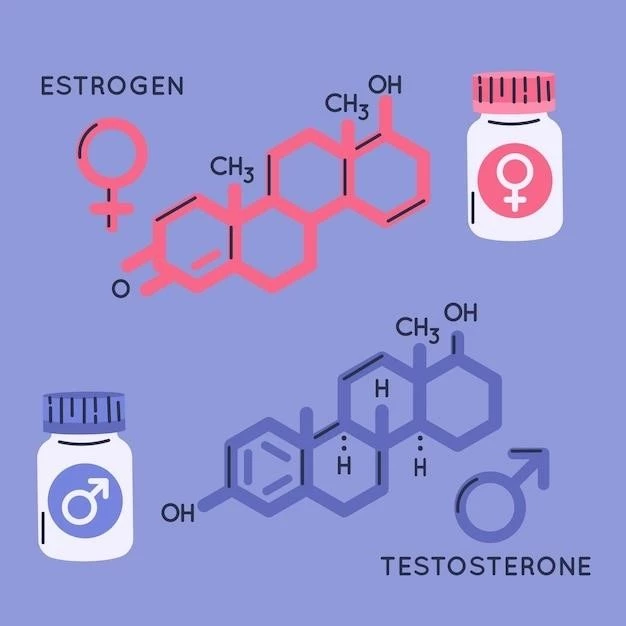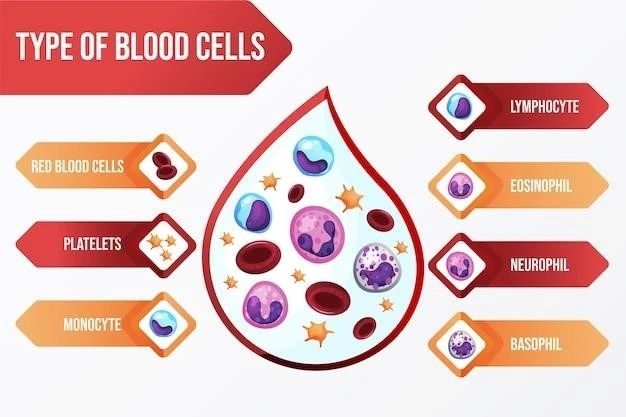Article Plan⁚ Disease ౼ Multiple Carboxylase Deficiency, Propionic Acidemia
The following information is written on the Internet today on a topic⁚ Today is 03/24/2024 20⁚37⁚03
Propionic acidemia, also known as propionic aciduria or propionyl-CoA carboxylase deficiency, is a rare autosomal recessive metabolic disorder, classified as a branched-chain organic acidemia;
Propionic acidemia, also known as propionic aciduria or propionyl-CoA carboxylase deficiency, is a rare autosomal recessive metabolic disorder classified as a branched-chain organic acidemia. It is caused by mutations in the PCCA and PCCB genes, leading to the deficiency of an enzyme required for the breakdown of certain amino acids.
On the other hand, multiple carboxylase deficiency is a rare inherited metabolic disorder that affects the metabolism of biotin. This disorder can be associated with defects in propionyl-CoA carboxylase activity, leading to the accumulation of propionic acid and other organic acids in the body.
The symptoms of these conditions can range from feeding intolerance, vomiting, and lethargy to more severe complications if left untreated. The distinction between these disorders lies in the specific enzymes affected and the resulting metabolic imbalances.

Causes of Multiple Carboxylase Deficiency
Multiple carboxylase deficiency is usually caused by mutations in the genes responsible for the biotin-dependent carboxylases, particularly the holocarboxylase synthetase gene (HLCS). These mutations lead to impaired activity of enzymes such as propionyl-CoA carboxylase, contributing to the metabolic dysregulation seen in individuals with this disorder. Defects in the biotin metabolism pathway can also play a role in the development of multiple carboxylase deficiency.
Additionally, environmental factors, such as poor dietary intake of biotin or certain medications that interfere with biotin absorption or utilization, can exacerbate the deficiency. Individuals with certain genetic predispositions may be more susceptible to developing multiple carboxylase deficiency when exposed to these environmental triggers.
Causes of Propionic Acidemia
Propionic acidemia is primarily caused by mutations in the PCCA and PCCB genes, leading to a deficiency in the enzyme propionyl-CoA carboxylase. This enzyme is crucial for the breakdown of certain amino acids, including isoleucine, valine, threonine, and methionine. The inability to properly metabolize these amino acids results in the accumulation of toxic substances, such as propionic acid, in the body.
In addition to genetic factors, environmental triggers like poor dietary management or certain medications can exacerbate the symptoms of propionic acidemia by interfering with the body’s ability to process these amino acids efficiently. Individuals with mutations in the PCCA and PCCB genes are at an increased risk of developing propionic acidemia when exposed to these environmental factors.
Symptoms of Multiple Carboxylase Deficiency
Common symptoms of multiple carboxylase deficiency include metabolic acidosis, hypotonia, skin rash, alopecia, lethargy, and developmental delays. Patients may also exhibit symptoms such as vomiting, seizures, and failure to thrive. If left untreated, the condition can lead to life-threatening complications due to the accumulation of toxic substances in the body. Early diagnosis and management are essential to improve outcomes for individuals affected by multiple carboxylase deficiency.
Symptoms of Propionic Acidemia
Propionic acidemia typically presents with symptoms such as poor feeding, vomiting, lethargy, hypotonia, and metabolic acidosis. Other manifestations may include developmental delays, seizures, and failure to thrive. Due to the accumulation of toxic substances like propionic acid in the body, patients may experience neurological deterioration if the condition is not promptly diagnosed and managed.
In some cases, individuals with propionic acidemia may exhibit skin rashes, alopecia, and episodes of coma. The severity of symptoms can vary depending on the age of onset and the degree of enzyme deficiency. Early recognition of symptoms and genetic testing are crucial for timely intervention and improved outcomes in individuals with propionic acidemia.
Diagnosis of Multiple Carboxylase Deficiency
Diagnosing multiple carboxylase deficiency involves a combination of clinical evaluation, biochemical testing, and genetic analysis. Initial assessments may include urine organic acid analysis, which can reveal elevated levels of specific metabolites indicative of the disorder. Blood tests may also be conducted to measure levels of biotin and other relevant biomarkers.
Confirmation of diagnosis often involves genetic testing to identify mutations in the HLCS gene or other genes associated with biotin metabolism. Additionally, enzyme assays can help determine the activity levels of propionyl-CoA carboxylase and other affected enzymes; Early diagnosis is crucial to initiate appropriate treatment interventions and prevent complications associated with multiple carboxylase deficiency.
Diagnosis of Propionic Acidemia
Diagnosing propionic acidemia involves a series of steps, including clinical evaluation, biochemical testing, and genetic analysis. Initial assessments often include blood and urine tests to measure levels of toxic substances like propionic acid and specific amino acids. These tests can provide crucial information about the metabolic abnormalities present in individuals affected by propionic acidemia.
Genetic testing plays a significant role in confirming the diagnosis by identifying mutations in the PCCA and PCCB genes responsible for the enzyme deficiency. Additionally, imaging studies like MRI may be used to assess potential brain damage or structural abnormalities associated with the condition. Early and accurate diagnosis is essential to implement appropriate treatment strategies and improve patient outcomes.
Treatment Options for Multiple Carboxylase Deficiency
Treatment for multiple carboxylase deficiency often involves a combination of dietary management and supplementation with biotin, a key cofactor required for carboxylase activity. Patients may receive biotin therapy in pharmacological doses to address the enzyme deficiency and improve metabolic functions. Additionally, specialized medical foods or formulas may be prescribed to ensure adequate nutrient intake and prevent metabolic decompensation.
In cases where the deficiency is severe, biotin supplementation may need to be administered intravenously to bypass gastrointestinal limitations. Close monitoring of metabolic parameters, regular follow-up visits with healthcare providers, and genetic counseling are essential components of managing multiple carboxylase deficiency to optimize patient outcomes and prevent metabolic crises.
Treatment Options for Propionic Acidemia
Treatment for propionic acidemia involves a multidisciplinary approach aimed at managing metabolic abnormalities and preventing complications. The cornerstone of therapy is a specialized diet low in certain amino acids like isoleucine, valine, threonine, and methionine, which helps reduce the production of toxic metabolites like propionic acid.
In addition to dietary modifications, individuals with propionic acidemia may require supplementation with carnitine, which can help remove toxic byproducts and support energy metabolism. Biotin supplementation is often recommended to enhance the activity of residual propionyl-CoA carboxylase and improve metabolic functions. Close monitoring by healthcare providers and genetic counselors is essential to tailor treatment regimens to individual needs and optimize outcomes.
Epidemiology of Propionic Acidemia
Propionic acidemia is a rare autosomal recessive metabolic disorder with an estimated incidence of approximately 1 in 35,000 live births. It affects both men and women equally and is found in about 1 in 100,000 individuals in the United States. This ultra-rare condition impacts less than 50,000 people in the country. Other related organic acidurias and metabolic disorders, including biotin deficiencies such as multiple carboxylase deficiency, can sometimes present with similar symptoms.
The disorder can be differentiated from multiple carboxylase deficiencies through specific biochemical tests that assess the activity levels of carboxylases involved. Early detection through clinical evaluation, blood, and urine testing, along with genetic confirmation, is vital for effective management and treatment of propionic acidemia.
Distinction Between Propionic Acidemia and Methylmalonic Acidemia
Propionic acidemia and methylmalonic acidemia are both inherited metabolic disorders but differ in the specific enzyme deficiencies involved. Propionic acidemia results from the deficiency of the propionyl-CoA carboxylase enzyme, impairing the breakdown of certain amino acids like isoleucine, valine, threonine, and methionine, leading to propionic acid accumulation.
On the other hand, methylmalonic acidemia stems from a deficiency in the enzyme methylmalonyl-CoA mutase, affecting the metabolism of propionate, odd-chain fatty acids, cholesterol, and some amino acids. Both conditions present with metabolic acidosis, but the distinguishing factor lies in the specific enzymatic defects and metabolic pathways affected, guiding tailored diagnostic and treatment approaches.
Connection Between Propionic Acidemia and Holocarboxylase Synthetase Deficiency
The connection between propionic acidemia and holocarboxylase synthetase deficiency lies in the shared metabolic pathways involving biotin and carboxylase enzymes. Propionic acidemia results from a deficiency of the propionyl-CoA carboxylase enzyme required for amino acid breakdown. On the other hand, holocarboxylase synthetase deficiency affects the activation of biotin-dependent carboxylases, including propionyl-CoA carboxylase.
In some cases, individuals may present with symptoms suggestive of both conditions, highlighting the interplay between biotin metabolism and carboxylase activity. Proper diagnosis and differentiation between propionic acidemia and holocarboxylase synthetase deficiency are crucial for implementing targeted treatment strategies to address the specific enzymatic deficiencies involved.
Research and Advancements in Treating Propionic Acidemia
Research in the field of propionic acidemia has focused on improving treatment strategies and outcomes for affected individuals. Advancements include developing targeted therapies such as enzyme replacement approaches to address the deficiency of propionyl-CoA carboxylase, the enzyme central to the condition. These therapies aim to enhance metabolic functions and reduce the accumulation of toxic substances like propionic acid.
Furthermore, ongoing studies explore the feasibility of innovative treatment modalities, including gene therapy and metabolic correction techniques, to address the underlying genetic defects associated with propionic acidemia. Collaborative efforts between clinicians, researchers, and advocacy groups aim to expand treatment options, improve early diagnosis, and enhance the quality of life for individuals living with propionic acidemia.
Complications Associated with Propionic Acidemia
Complications associated with propionic acidemia can be severe and life-threatening if not managed effectively. Common complications include metabolic acidosis, hyperammonemia, hypoglycemia, and neurological deterioration. In some cases, individuals may experience episodes of lethargy, seizures, and coma due to the accumulation of toxic metabolites like propionic acid.
Long-term complications may involve developmental delays, intellectual disabilities, and growth impairments. Cardiomyopathy and arrhythmias have also been reported in some patients with propionic acidemia. Proper monitoring of metabolic parameters, adherence to dietary restrictions, and prompt intervention during metabolic crises are vital in preventing and managing complications associated with this metabolic disorder.
Prognosis and Outlook for Patients with Multiple Carboxylase Deficiency and Propionic Acidemia
The prognosis for individuals with multiple carboxylase deficiency and propionic acidemia can vary depending on the severity of the condition, early diagnosis, and adherence to treatment regimens. Patients managed with timely interventions, such as dietary modifications, biotin supplementation, and close medical monitoring, can experience improved outcomes and better quality of life.
However, both disorders can lead to significant complications if left untreated, including metabolic decompensation, developmental delays, and neurological impairments. Long-term management and regular follow-up care are essential to mitigate risks and optimize the overall prognosis for individuals affected by multiple carboxylase deficiency and propionic acidemia.

